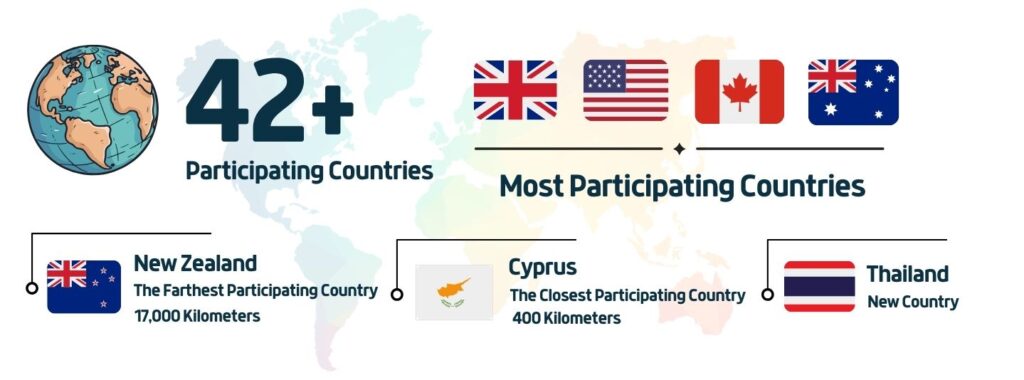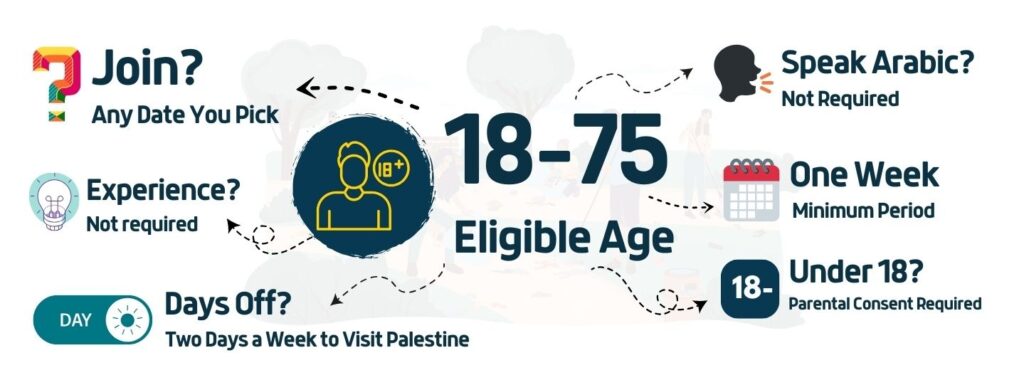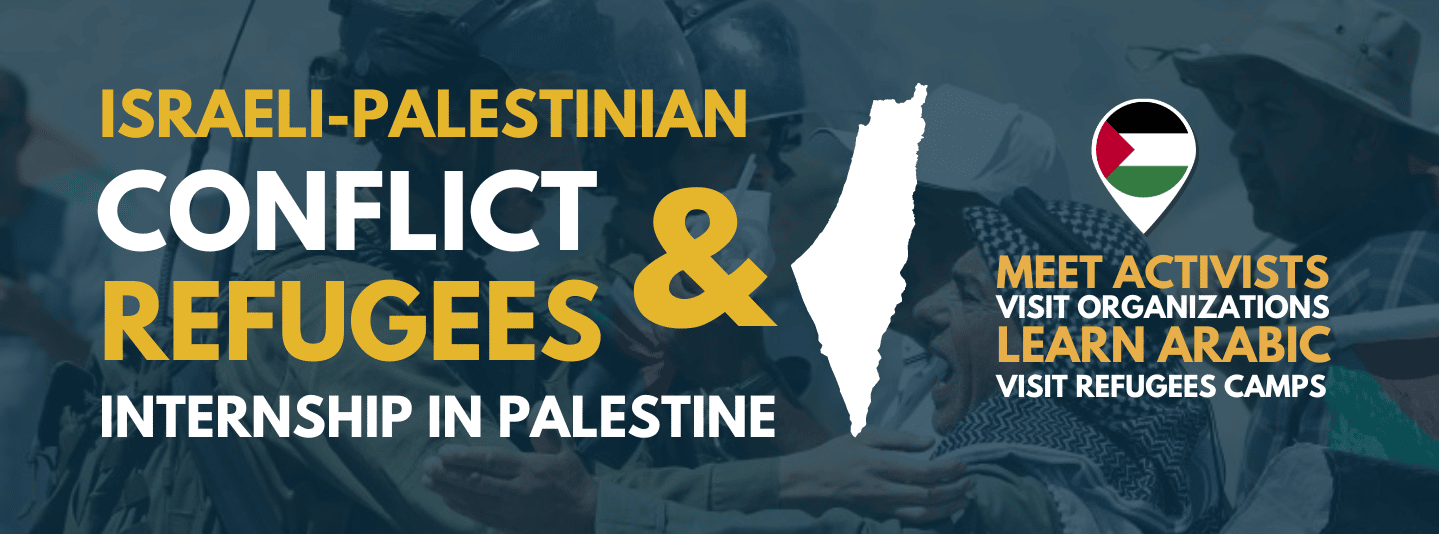

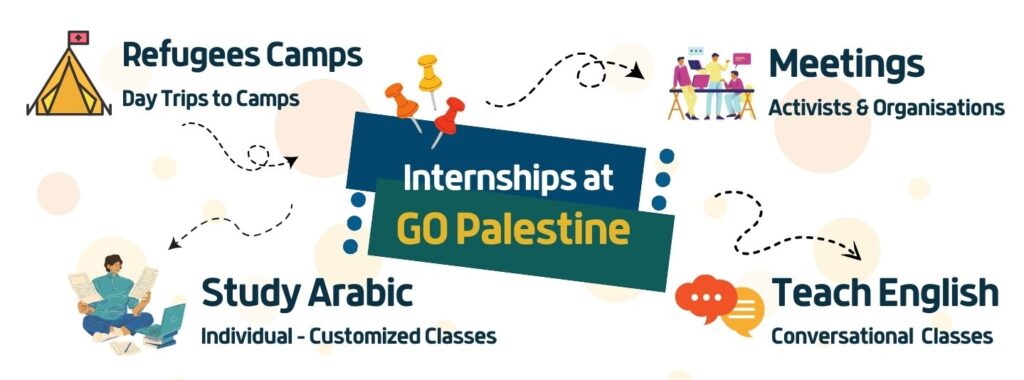
Where does the Program take place?
It takes place in the heart of Palestine, in the city of Hebron. Hebron, Al-Khalil in Arabic, is located in the southern part of the West Bank. It is 30 km (19 miles) south of Jerusalem. The population of Hebron is about 300,000 persons who reside in the city, and about another 500,000 who live in the surrounding villages.
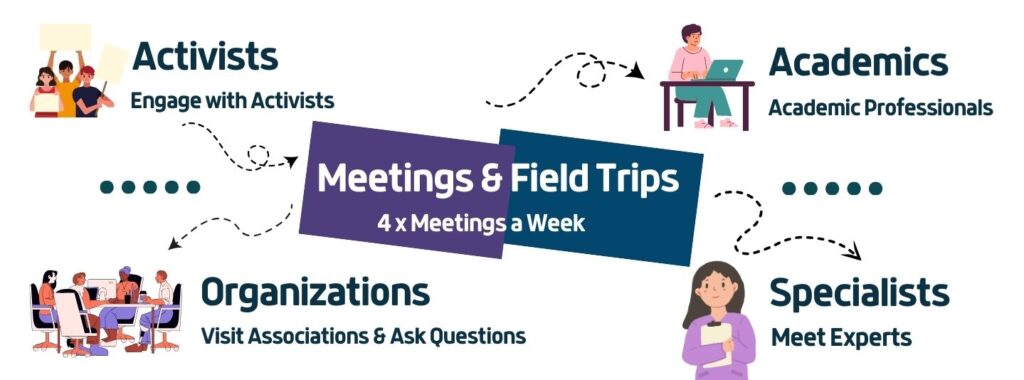
How long can I participate in the program?
Our Interns can choose to participate in the program for a period of one to 12 weeks. Whatever length of time you choose, we will support you so that you have a great and unique experience at our center and in this wonderful city of Hebron.
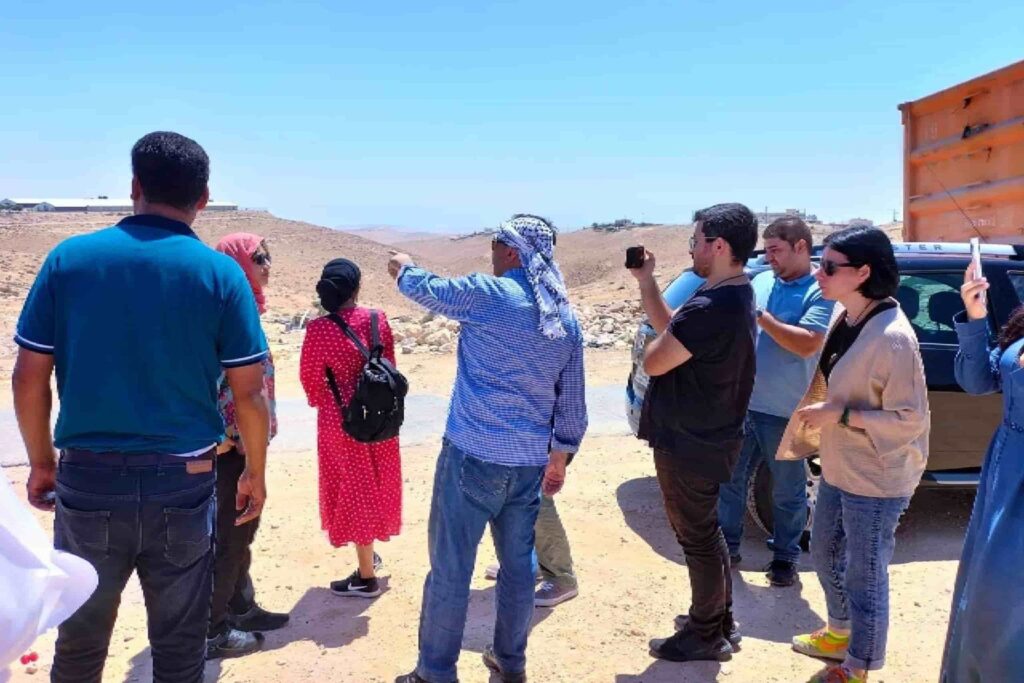
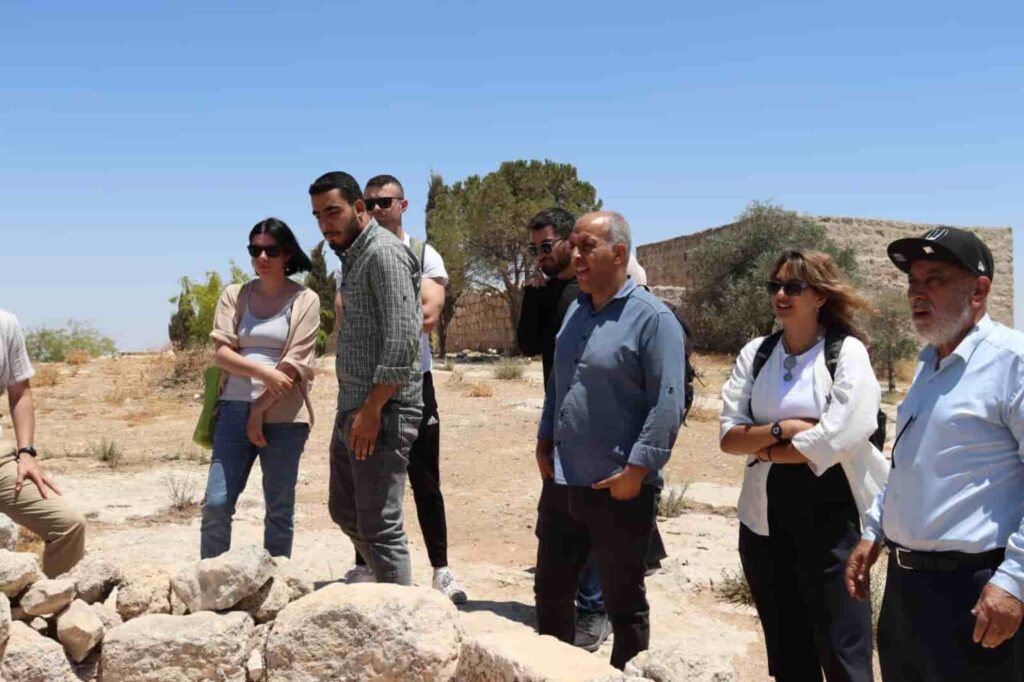
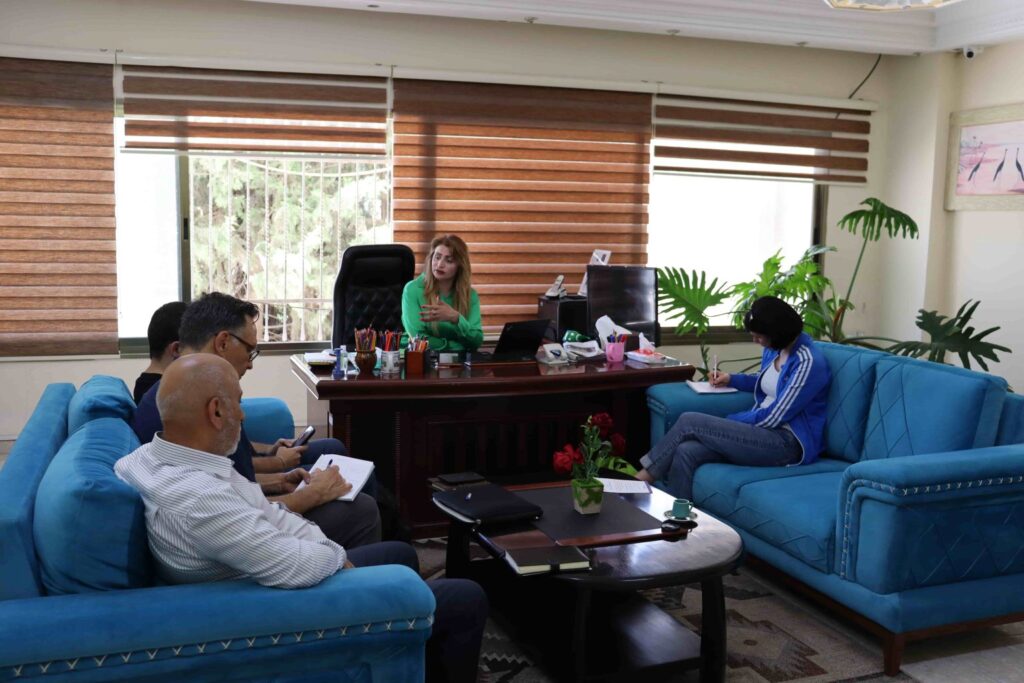
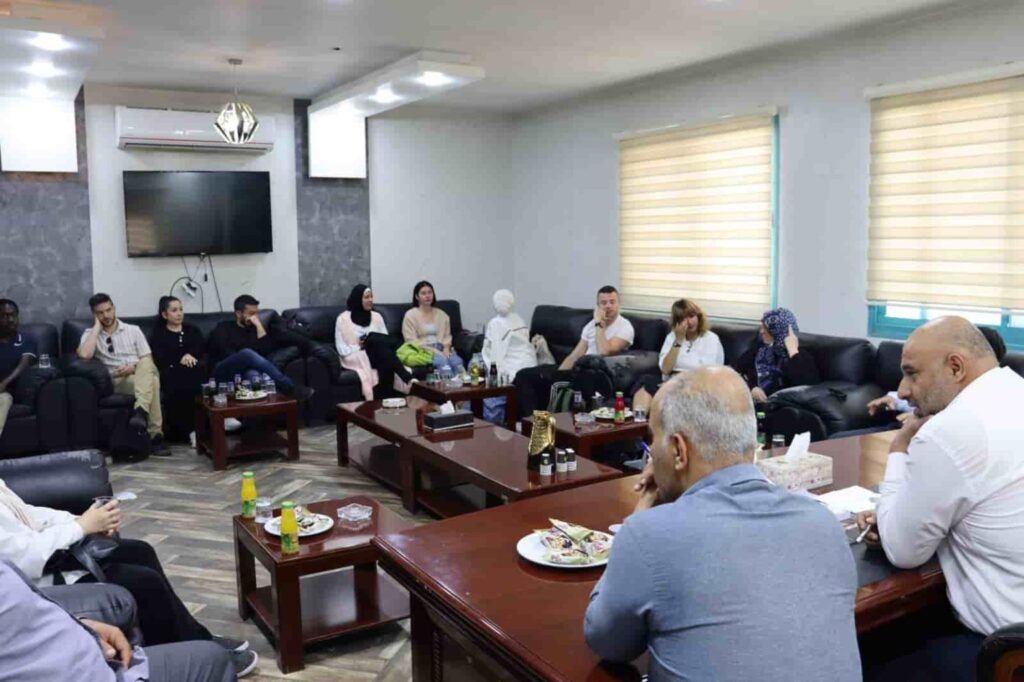
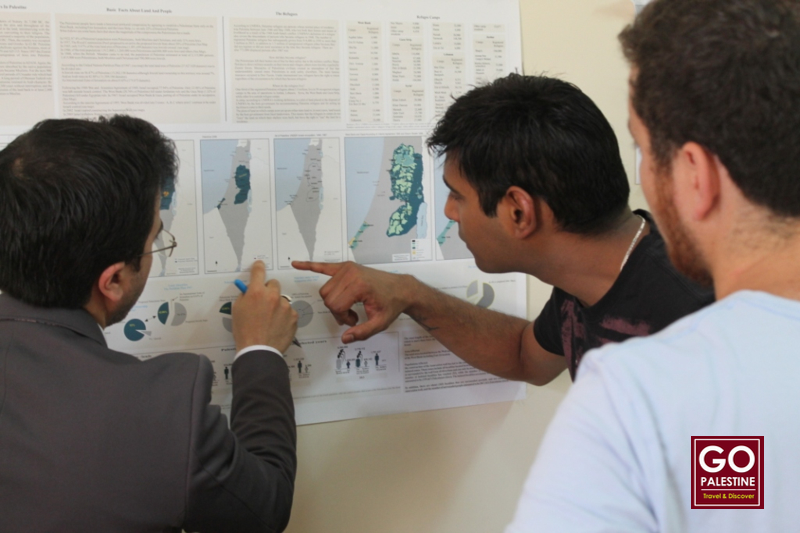
Is there a specific day I need to start the program?
No, there is no requirement to begin the program on a specific day of the week. You have the flexibility to start whenever it suits you best, whether that’s Saturday, Monday, Thursday, or any other day. The program is designed to accommodate your schedule, so you can choose a starting day that works best for your routine and preferences. There’s no set starting point or restriction on when you can begin.
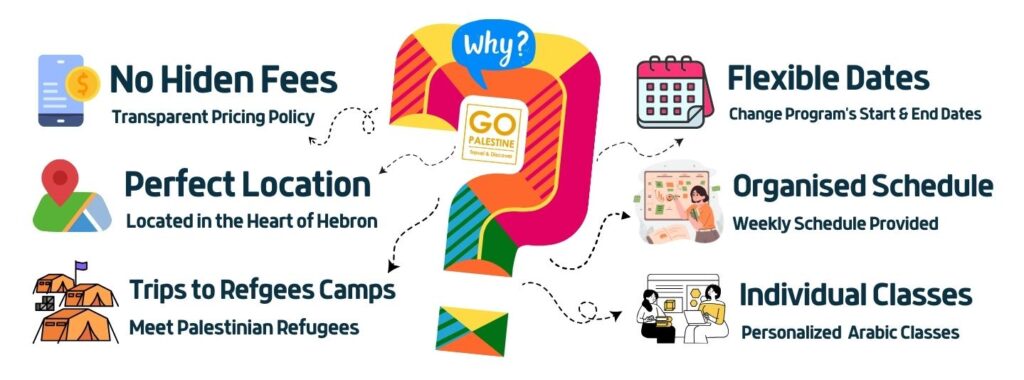
The Benefits of The Israeli-Palestinian Conflict and Refugees Internship Program
- You will meet organizations/field researchers, as well as camp residents & families.
- You will meet with the Palestinian people who live in areas within the city of Hebron that are under Israeli control named “H1” who is a particularly strong example of those suffering from the occupation policies, as well as being routinely harassed by Israeli settlers.
- A participant will have the opportunity to organize workshops on a topic related to the program; or present workshops that teach a variety of skills, such as academic writing, writing biography, drawing, first aid, theater, music, and other skills.
- The participant will engage in the Palestinian community, culture, and daily life.
- Participants will be visiting city historical sites.
- Day Trips to refugee camps in Hebron & Bethlehem and some areas of political importance.
- All participants will receive 3 hours of Arabic language lessons per week.
- Accommodation is provided for the length of the program, either residing with a Palestinian host family or at our 8th-floor apartment. Private accommodation is also available with extra fees.
- A Palestinian breakfast is provided every day and enjoyed with other international volunteers and staff.

Origins of the Israeli-Palestinian Conflict
- The Israeli-Palestinian conflict refers to the ongoing political and military tensions between Israel and several Arab nations.
- Its roots trace back to the late 19th century with the rise of Zionism and Arab nationalism. Palestinians regard Palestine as their ancestral homeland, inhabited for thousands of years. In contrast, Zionist Jews view the land as divinely promised to them, as stated in biblical texts.
- The conflict between Israeli Jews and Palestinian Arabs escalated in the early 20th century, reaching a turning point in 1947 with a war that involved widespread displacement and the forced expulsion of Palestinians from their villages and towns. This culminated in the first Arab-Israeli war in May 1948, following the declaration of the State of Israel.
Who are the Palestinian Refugees?
According to the United Nations Relief and Works Agency (UNRWA), Palestinian refugees are individuals who lived in Palestine between June 1946 and May 1948 and were displaced, losing their homes and livelihoods as a result of the 1948 war.
Today, over 1.4 million registered Palestinian refugees—approximately one-third of the total refugee population—reside in 58 officially recognized camps across Jordan, Lebanon, Syria, the Gaza Strip, and the West Bank, including East Jerusalem.
In response to the aftermath of the June 1967 war and Israel’s occupation of the West Bank and Gaza Strip, ten additional camps were established to shelter a new wave of displaced Palestinians, including both refugees and non-refugees.
The land where these camps are located is generally either government-owned or leased by host governments from private landowners. While refugees do not own the land their homes are built on, they are granted the right to use it for residential purposes.
In the Hebron area, two prominent refugee camps provide shelter and community services:
- Al-Arroub Camp: Established in 1949, it lies 15 km south of Bethlehem and 35 km south of Jerusalem, north of Hebron.
- Al-Fawwar Camp: Located 8 km south of Hebron, it was named after Ain al-Fawwar, a spring in the nearby town of Dura.
Both camps stand as enduring symbols of the displacement and ongoing struggles faced by Palestinian refugees.

What Else Can I Do as an Intern ? (Optional)
- As a an inetrn, you can also organize workshops, seminars, or lectures on topics you are knowledgeable about. Whether it’s at the University of Hebron or our center, we’ll assist you in making the necessary arrangements.
- We will connect you with the University or organize the event at our center, targeting local Palestinian participants. These workshops can run for one, two, or three days—or any timeframe that fits your schedule. We’ll handle announcements, logistics, and participant coordination, allowing you to focus on preparing your materials.
- Our center is fully equipped with everything you might need, including a screen, projector, whiteboard, laptop, and more. You’ll have all the support required to deliver an impactful and engaging session.

200+ Reviews from Past Participants – Gold verified by Go Overseas!
To learn more about the experiences of participants with “Go Palestine,” you can explore reviews on well-known platforms such as Go Overseas and GoAbroad. The organization has consistently received over 200 positive reviews on both websites combined from volunteers and interns worldwide.

These testimonials showcase the outstanding quality, rich cultural exchange opportunities, and impactful programs provided by Go Palestine. Whether you’re interested in volunteering, internships, or Arabic language courses, these reviews offer valuable perspectives on the organization’s dedication to creating meaningful and transformative experiences.





What does your weekly schedule look like?
We at GO Palestine are keen to make your weekly schedule diversified, rich, and organized. Thus, it will contain a number of educational, social, and fun activities that will make your experience in Palestine special and unique.
Breakfast starts at 9:30 am
The day at our center starts with a special Palestinian breakfast at 9:30 in the morning and ends at approximately 10:15. Our breakfast contains a number of ingredients, including Palestinian thyme (Zaatar), labneh, tomato and cucumber slices, falafel, hummus, mortadella, olives, yellow cheese, jam, pita bread, boiled or fried eggs, and French fries. The ingredients are changed (among the mentioned ingredients) from time to time to diversify the breakfast.
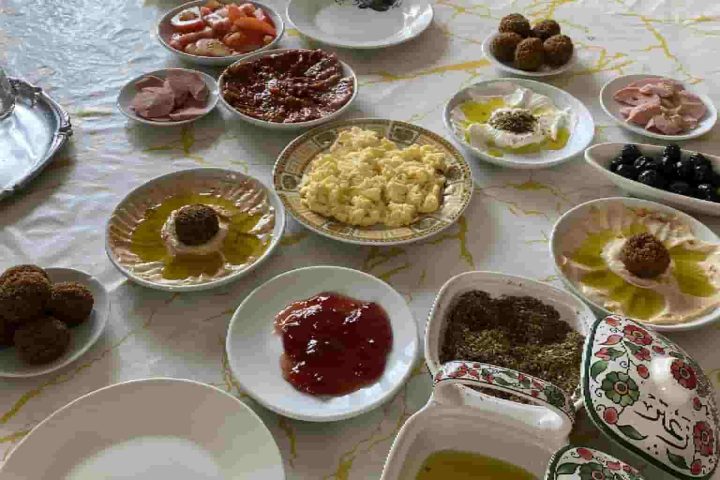
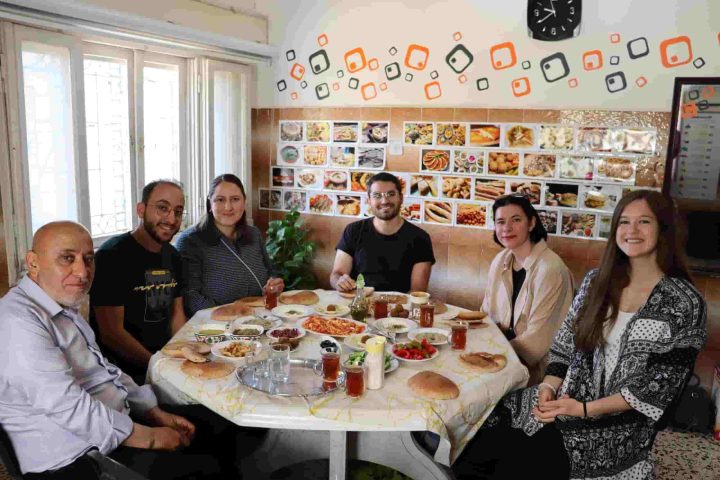
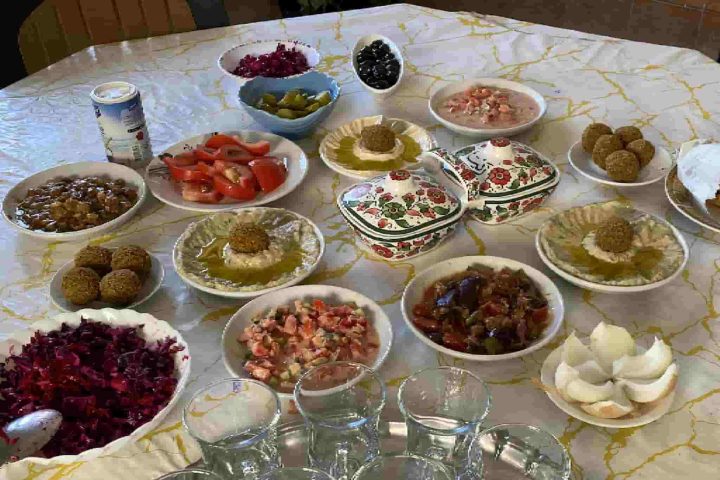
The Content of the program starts at 10:30
The content of your program begins at 10:30 in the morning and continues until 1:30 or 2:00 in the afternoon. This may include field visits, meetings with different institutions related to the chosen program, or teaching conversational English to a number of Palestinian students. This differs depending on the program you are joining.
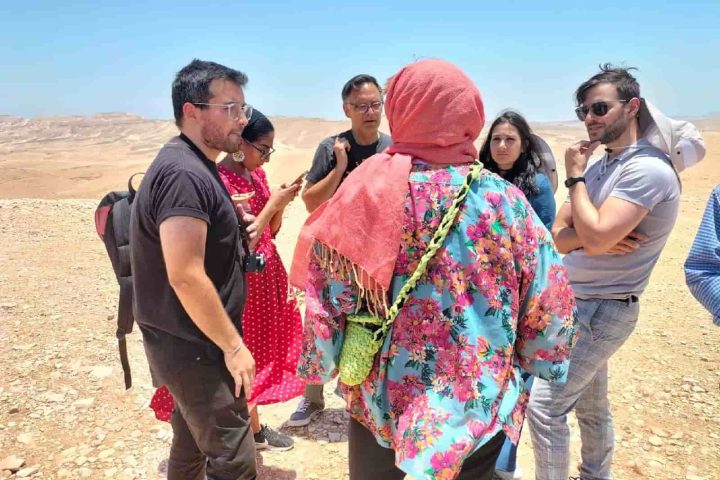

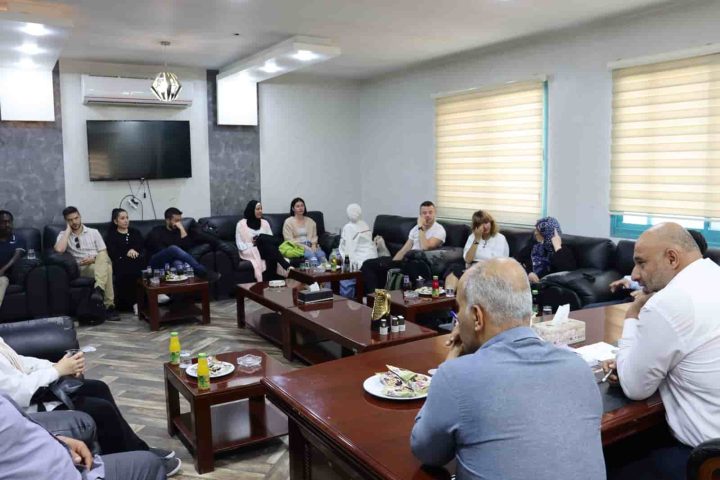
Lunch Break starts at 2:00 pm
At two o’clock in the afternoon begins the lunch break, which lasts for an entire hour. You can buy lunch from a restaurant next to the center. There are a number of restaurants nearby, which provide meals such as shawarma, falafel, and fried chicken as well as traditional Palestinian meals such as Maqluba, Hebron’s Qidreh, Chicken Mansaf or Lamp Mansaf, and other meals. There are also a number of supermarkets/malls nearby where you can buy what you need and cook yourself in the center.

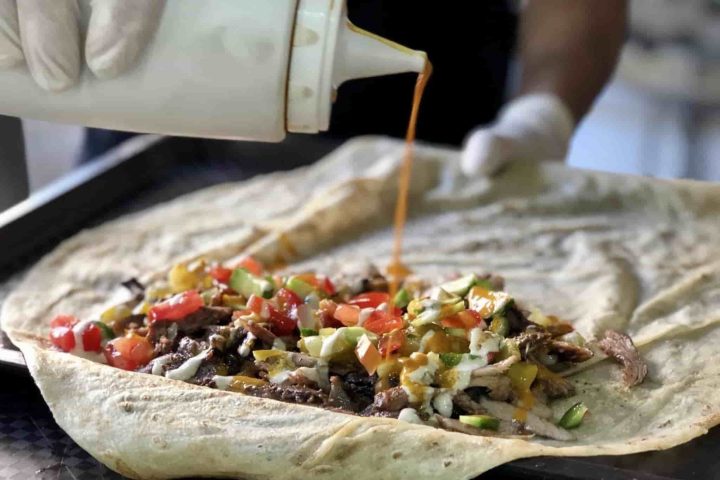
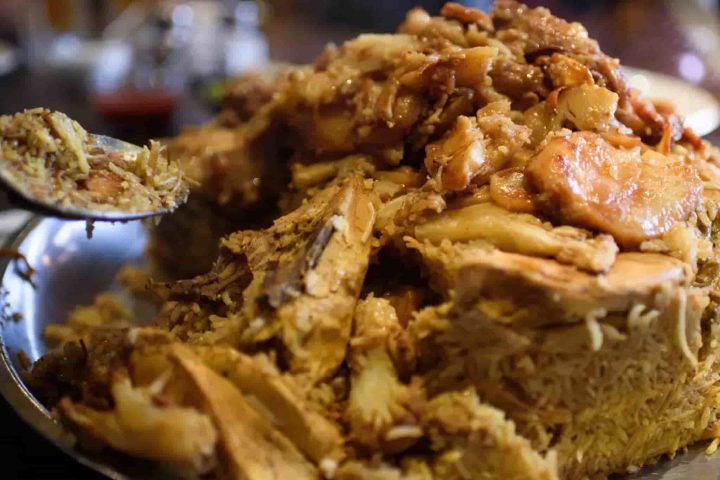
Arabic Language Classes (MSA and Levantine/Colloquial)
Weekly, you will get two Arabic language classes for an hour and a half each. These classes are taught by one of our skilled/qualified teachers. Arabic language classes are held at different times, either in the morning or, in most cases, in the afternoon. The student can choose whether to study Modern Standard Arabic, Colloquial Arabic (Ammiya), or both.
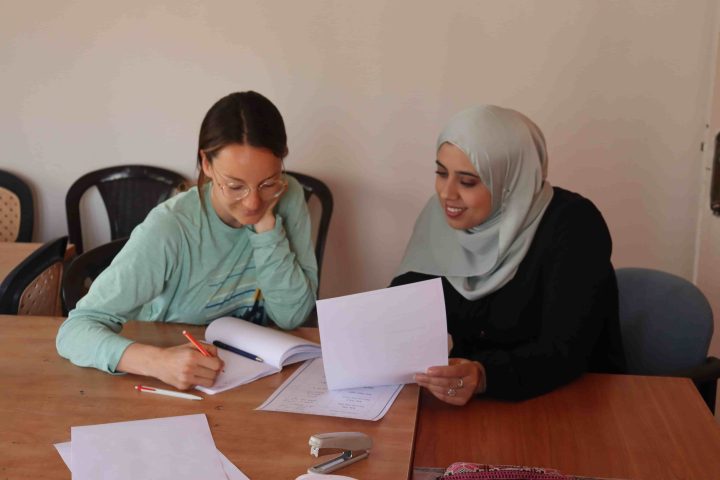
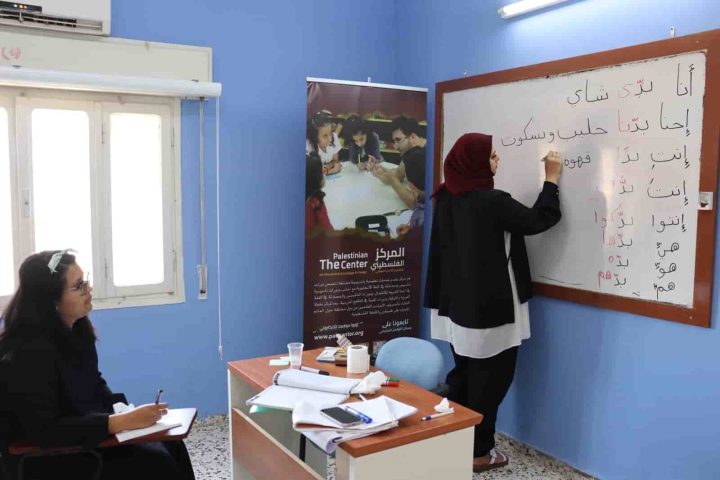

Day Trips to Refugee Camps in Bethlehem & Hebron
Once every week, a day trip is organized to the refugee camps in Hebron and Bethlehem, as well as to areas of political importance whenever the opportunity arises. These trips will give you the opportunity to learn about the conditions of the Palestinian refugees, talk to them and learn their stories. These trips depart at 10:45 am from the center and end approx. at 2:00 or 3:00 in the afternoon.
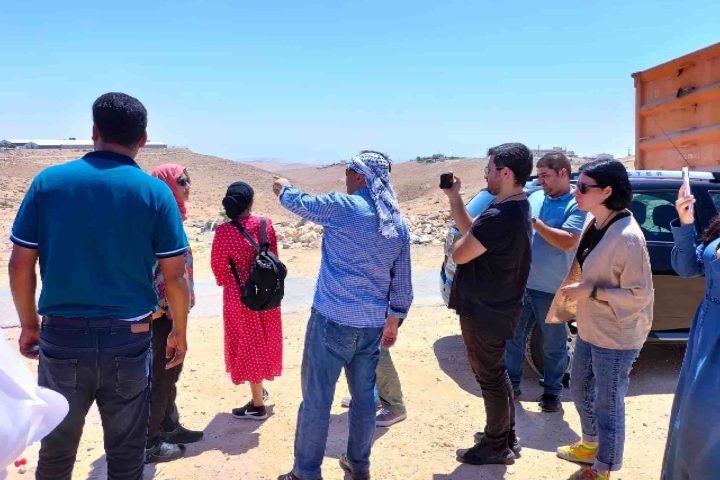

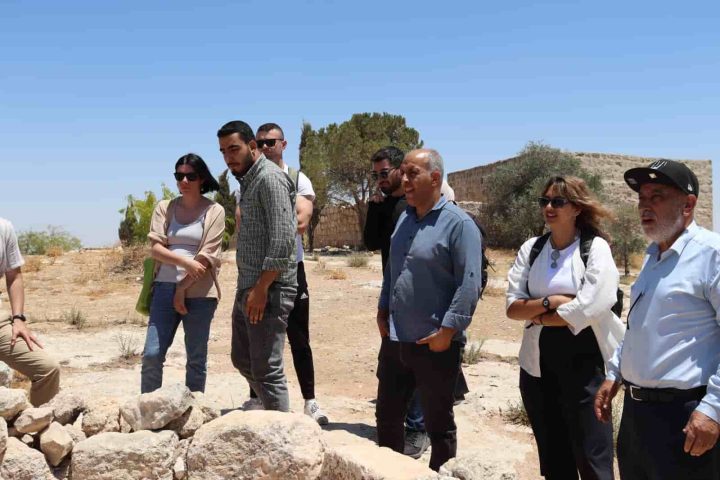
Local Visits to Learn about the Landmarks of the city of Hebron
Once every two weeks, local visits are organized to the historical and economic landmarks of the city of Hebron. This includes a visit to the Ibrahimi Mosque, the Old City, and Al-Shuhada Street as well as visiting a number of factories in the city, such as keffiyeh, glass, and ceramic factories.
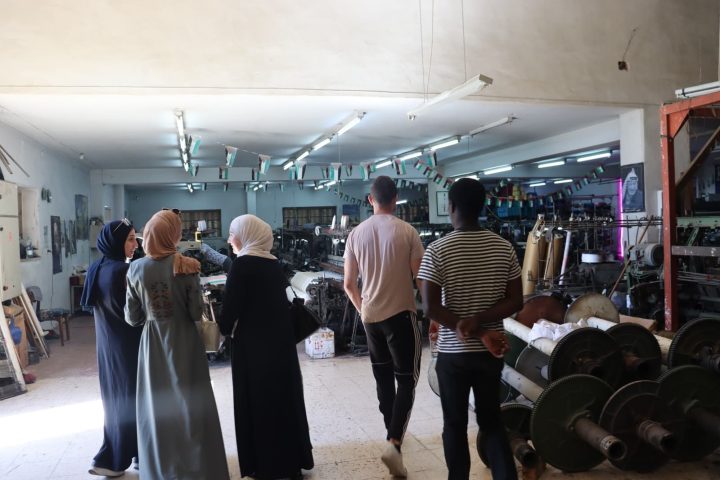
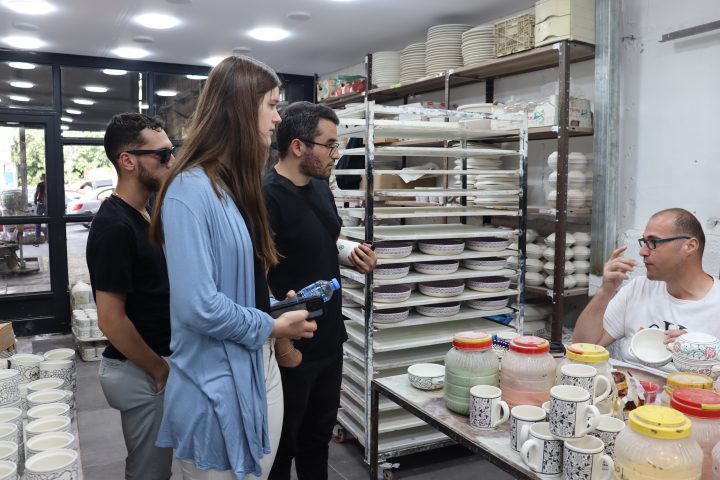

Prepare & Cook a Traditional Palestinian Dish
Once every two or three weeks, all our volunteers, interns, and Arabic language’ students join together to prepare and cook a traditional Palestinian dish. This includes preparing appetizers, frying vegetables, cooking rice, chopping chicken or meat, and stuffing some vegetables depending on the dish to be cooked that day.
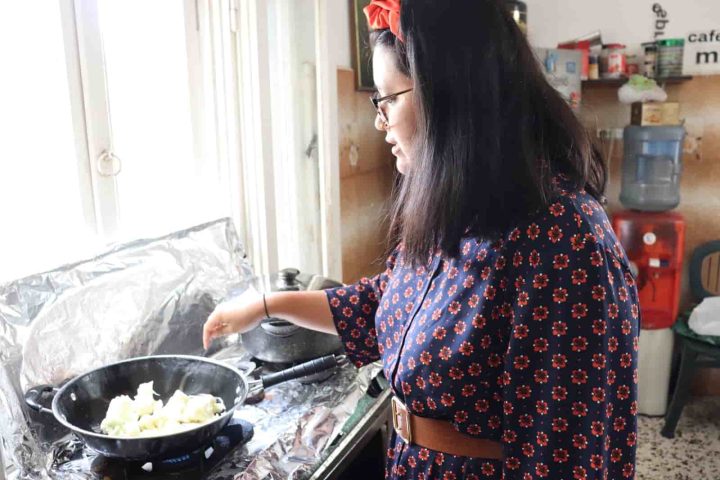
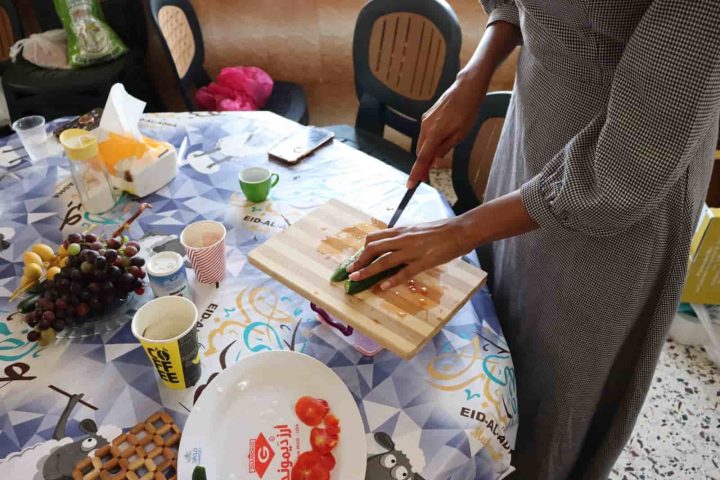
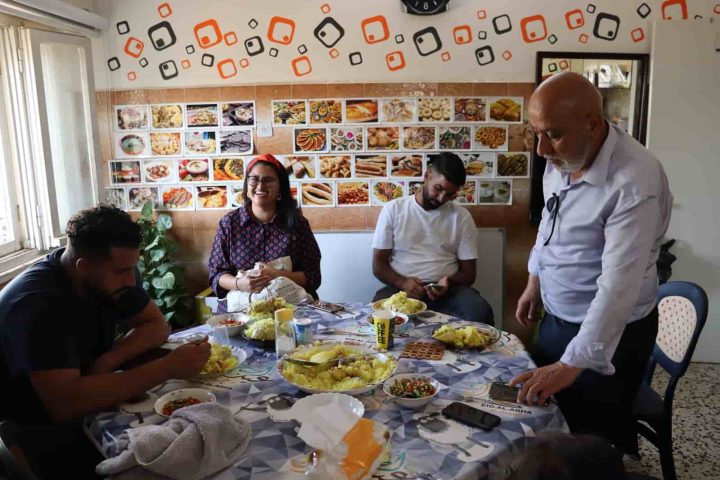
Free Time starts at 16:00 or at 16:30
After your time in the center is over, you have free time where you can hang out with other international participants and/or locals you met during your stay in Hebron by going to a café or coffee shop or going to a park and enjoying your time in the evening. There are many cafes and parks not far from the center, as the center is located on one of the most lively streets in the city.
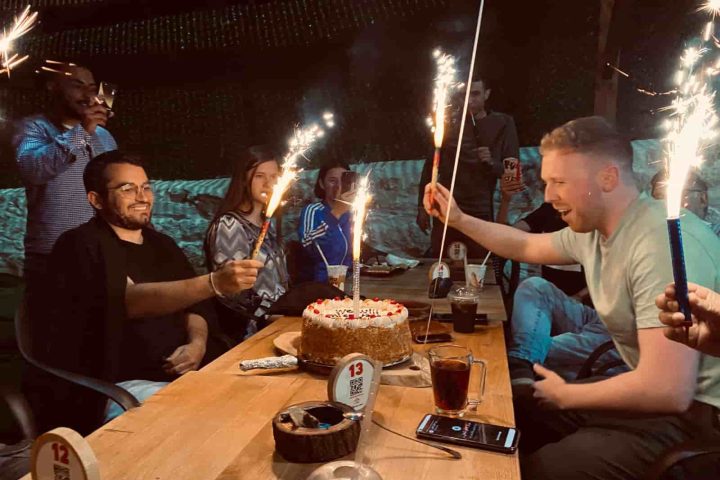
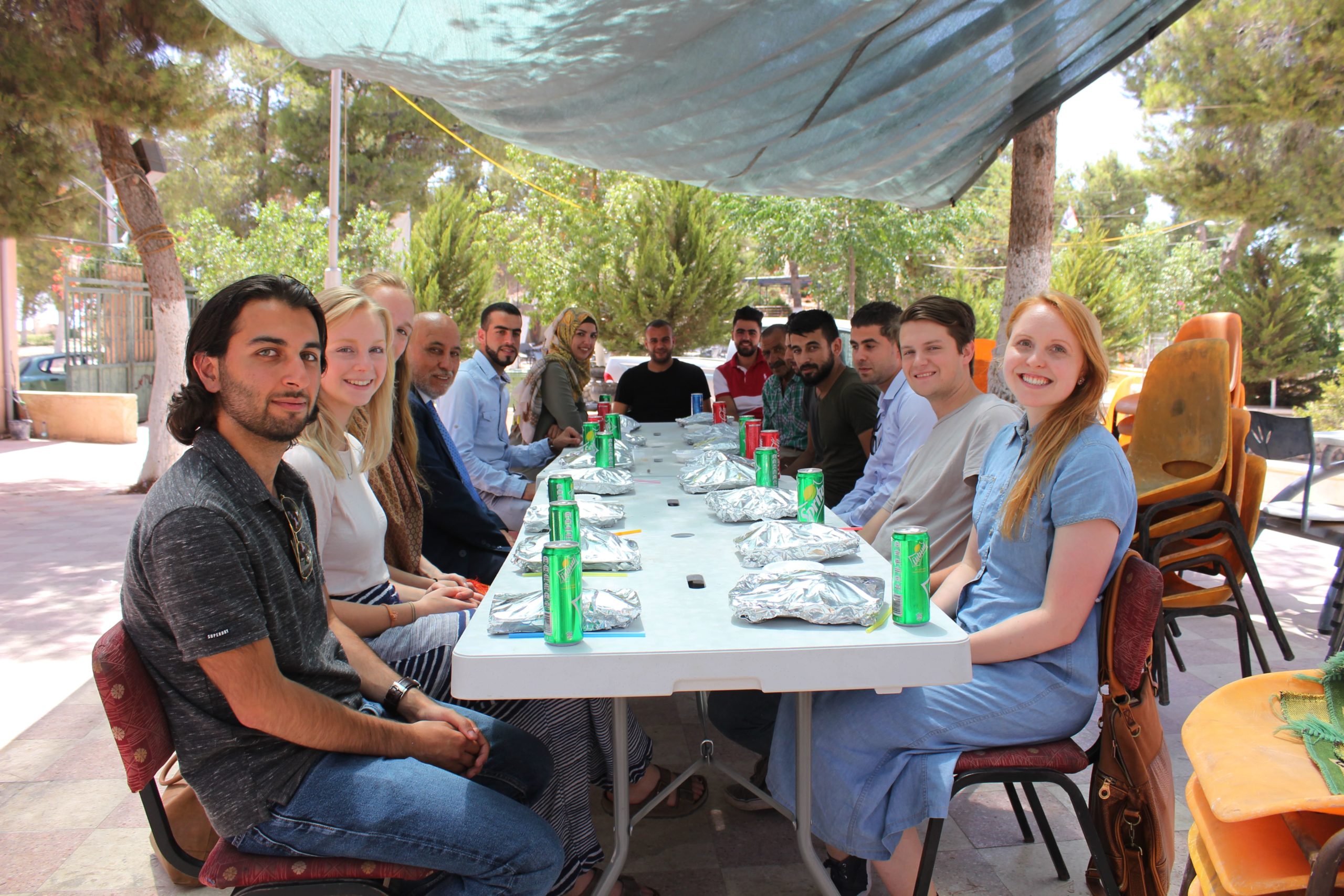


The Israeli-Palestinian Conflict And Refugees Internship Fees

Our fees are intended to support Palestinian teachers and families, and to help us continue offering valuable services to the Palestinian community, as we do not receive any external funding. Click here to view our program fees and learn how your contribution supports our work.
What does the Participation Fee include?
| Accommodation | Host family or at our 8th-floor apartment Private accommodation is available with extra fees |
| Feild Visits/Meetings | To visit organizations/field researchers, as well as camp residents & families living in H2 area in Hebron. |
| Arabic Lessons | 3 Hours a Week – Two Classes/ 1,5 hours each. |
| Meals | Daily Palestinian breakfast at the center |
| Day Trips | To Refugees camps in Hebron & Bethlehem & some areas of political importance |
| Sightseeings in Hebron | Historical & politically important sites in Hebron and Hebron factories. |
| Certificate of Participation | Certificate of participation & recommendation letter at the end of the program |

When Should You Arrive to Start Your Program?
We recommend arriving in Palestine a day before your chosen start date. This gives you time to settle in and prepare for the experience. You can also stay an extra day after the program ends to ensure a smooth and relaxed departure.
What Visa Do You Need to Intern in Palestine?
To intern in Palestine, you’ll need an Israeli tourist visa, which allows you to stay for up to 3 months. Getting an internship visa directly in Palestine can be difficult.
Visa Requirements for Palestine
If you’re from a country with a visa exemption agreement with Israel, you can get a tourist visa upon arrival at Ben Gurion Airport (Tel Aviv) or the Allenby-King Hussein Bridge border crossing. Citizens of countries like the United States and many European nations are usually granted a three-month visa on arrival.
If your country doesn’t have an exemption agreement, you’ll need to get a visa from the Israeli embassy or consulate in your home country before traveling. Israel now issues visas on a separate card with a barcode to avoid passport stamps, as some Arab countries do not accept Israeli passport stamps. Be sure to check if your country participates in a visa exemption agreement.
What If Your Passport Isn’t Suitable for a Tourist Visa?
If you’re from a country like Pakistan or India, you’ll need to apply for a visa from the Israeli embassy in your country before interning in Palestine. This can be challenging, as Israel controls all entry points, making the visa a requirement before you even apply.
Is the West Bank Safe for Interning?
Yes, the West Bank is generally safe for interning. Most incidents occur in areas far from the main cities where Go Palestine programs are held. Cities like Hebron, Bethlehem, and Ramallah, where most programs take place, are stable and safe.
Interns often find the local community welcoming and supportive, which adds to the sense of security. However, we recommend staying updated on local news and following any safety advice from your hosts.
Is Prior Experience Required to Intern in Palestine?
No prior experience is required to intern in Palestine. Our programs are open to people from all backgrounds, whether or not they have previous experience. We focus on creating a supportive environment where everyone can contribute, learn, and make a difference.
What matters most is your enthusiasm and dedication. Our team will be with you every step of the way, whether you’re experienced or just starting out. We invite you to join us in making a positive impact in this remarkable region.
Do I Need to Know How to Speak Arabic?
No, knowing Arabic is not a requirement for interns. The center will provide 3 hours of Arabic lessons each week with one of our teachers. You can choose to study Modern Standard Arabic (Fusha) or Spoken Arabic (Ammyia) once your program begins.
Can I Add More Arabic Lessons to My Program?
Yes, you can add extra Arabic lessons to your program. These additional lessons are available for $20 per hour and offer a deeper understanding of the language and culture. If you’d like to add this option, please specify it in your application so we can arrange it in advance.
| Place of Program | Hebron (H1 – Under Palestinian Control), Palestine |
| Age | 18-75 Years Old |
| Minimum Period | One Week |
| Maximum Period | Three Months – 12 Weeks |
| Interning Hours | 4-5 hours a day – 5 days a week |
| Starting/Ending Dates | Flexible – Anytime |
| Application Deadline | No Deadline |
| Program Language | English |
| Days off | Two days including Fridays & Thursdays or Saturdays |
| Arabic Lessons | 3 Hours a Week – Standard Arabic Or Ammiya |
| Educational Degree | Not Required |
| University Credit | Available |
Is it possible to combine this program with another Program?
Yes, this program can be combined with one or more of the other internship or volunteer programs that the center offers. For example, you may choose one week or more to complete this program, and combine this with another week or more of another program.
Can I Extend My Program While I’m There?
Yes, it is possible to extend the duration of your program while you are in Palestine. If you decide that you would like to stay longer, you are welcome to extend your participation. To make this change, you must inform the center coordinator at least one week before the end of your current program. This allows us to make the necessary arrangements and ensure that your extended stay is smoothly coordinated. Please reach out to the coordinator as early as possible to discuss your extension and confirm all details.
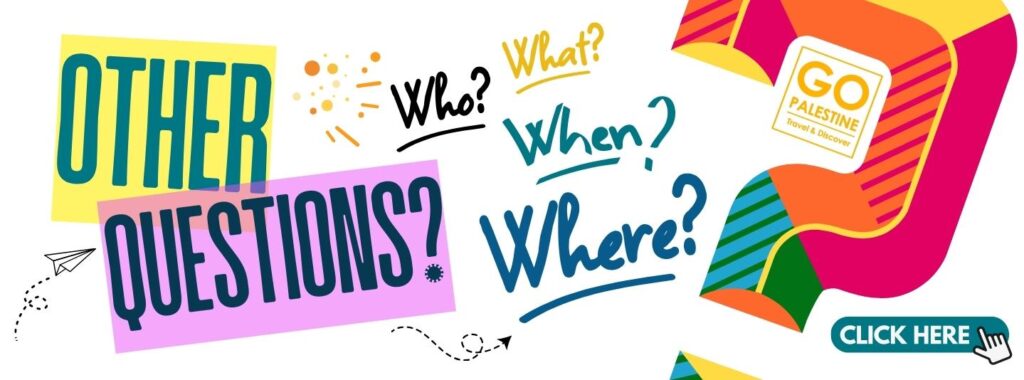
Things to know before visiting Palestine!
| Living Costs in Palestine | Approx. 50-70$ a Week |
| Weekend in Palestine | On Friday |
| Food in Palestine | The West Bank engages primarily in heavier meals involving the use of bread, rice, and meat, and coastal plain inhabitants frequent fish, other seafood, and lentils. |
| Wifi Access in Palestine | At houses, cafes, restaurants – Almost everywhere |
| 3G Service in Palestine | Available since Jan 2018 |
| The official language in Palestine | Arabic – Palestinian Dialect (One of the Levantine dialects) |
| Currency in Palestine | Mainly Israeli Shekel (NIS). Jordanian Dinar & American Dollars are also used in buying Real estate and land. |
| Transportations in Palestine | Yellow Taxies & Orange Mini-Vans |
| Weather in Palestine | Summer (25-30°C), Winter (0-9°C) |
| Nearest Major Airports to Palestine | Ben Gurion Airport in Israel if you travel via Israel Alia International Airport if you travel via Jordan |
The Documents you’ll receive from us!
When you join us, you’ll be provided with a complete set of documents designed to ensure a smooth and well-informed experience. One of these documents is our travel guide, which offers detailed instructions on how to reach us in Hebron. It includes information on the best transportation options available, making your journey to the program location as easy and convenient as possible.
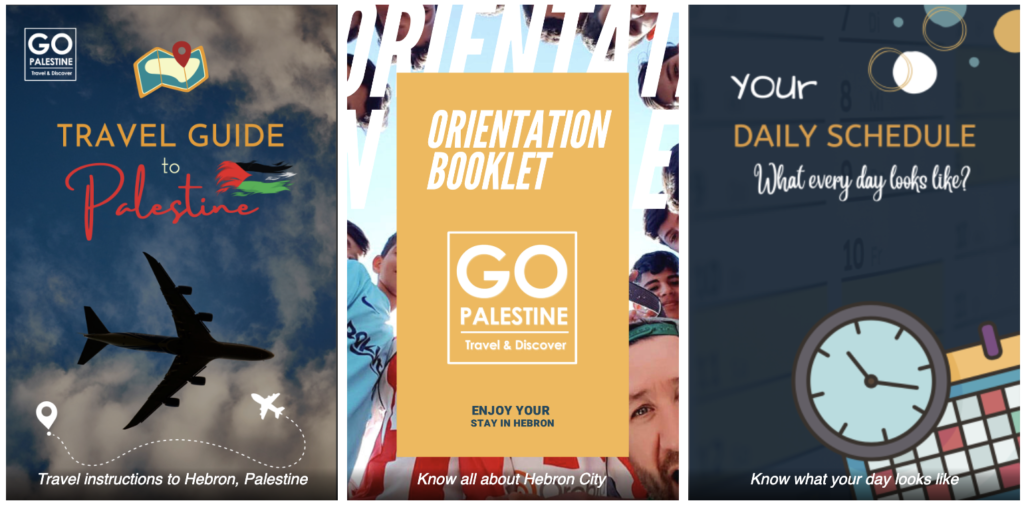
In addition, we’ll provide you with a weekly schedule booklet, which outlines the activities and events planned for each day of your program. This will help you organize your time and ensure that you make the most of every opportunity. To further enrich your experience, you’ll also receive an orientation booklet. This booklet is designed to help you get familiar with the local culture and surroundings, offering valuable insights into life in Hebron. It will provide you with a deeper understanding of the city’s history, traditions, and unique atmosphere, ensuring that you feel more connected to the place during your stay.

What can be added to your program? “Add-ons“
- Private apartment available as an add-on for $200 per week or $600–$700 per month.
Would you like to join an online Arabic course before joining us?
Learning Arabic before your arrival can greatly enhance your experience in Palestine. Familiarizing yourself with basic Arabic phrases and cultural expressions will help you feel more confident when communicating with locals, navigating everyday situations, and engaging with the local culture. By making an effort to understand the language, you’ll be better equipped to connect with people, enrich your interactions, and fully immerse yourself in the rich Palestinian culture, making your time in Palestine even more meaningful and rewarding.

We’re excited to offer you the chance to start this journey with a free trial, which includes your first class completely free! This is a great opportunity to get a taste of the Arabic language and see how it can enrich your time in Palestine. Click Here for more information!
Please email Mr.Tamimi, at info@gopalestine.org Or info@gopalestine.ps. Please type “ The Israeli-Palestinian Conflict and Refugees Internship Program” in the subject line. In the body of the email, ask any questions you may have, and request an application. Very shortly, we will reply to you.
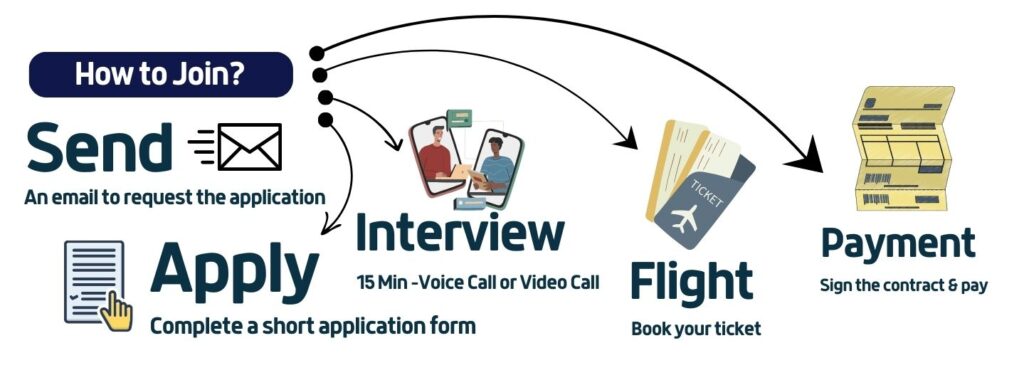
What is the procedure for applying?
| Step 1 | Send us an email asking for the application form. |
| Step 2 | You complete the online application and send it in. |
| Step 3 | We invite you to participate in an interview via WhatsApp, Zoom, Google Meet (video or voice call). |
| Step 4 | We will send you a confirmation form which you fill out and return to us. |
| Step 5 | We send you the Invitation Letter, the contract and the invoice. |
| Step 6 | You will sign the contract and make payment in order to reserve your place in the program. |
| Step 7 | We will send you an orientation booklet and travel guide to Palestine. |
Fast-Track Application – Within 3 days!
If you’re looking to join us next week or need to make arrangements on short notice, we’ve got you covered with our convenient fast-track application process. This streamlined option is designed to save you time and make it easy for you to get started.

With this process, you can quickly book your flight, submit your application, attend a personalized interview, pay the necessary fees, and secure your place—all within just three days. Whether you’re in a hurry or simply excited to begin, our fast-track system ensures a smooth and efficient onboarding experience.


